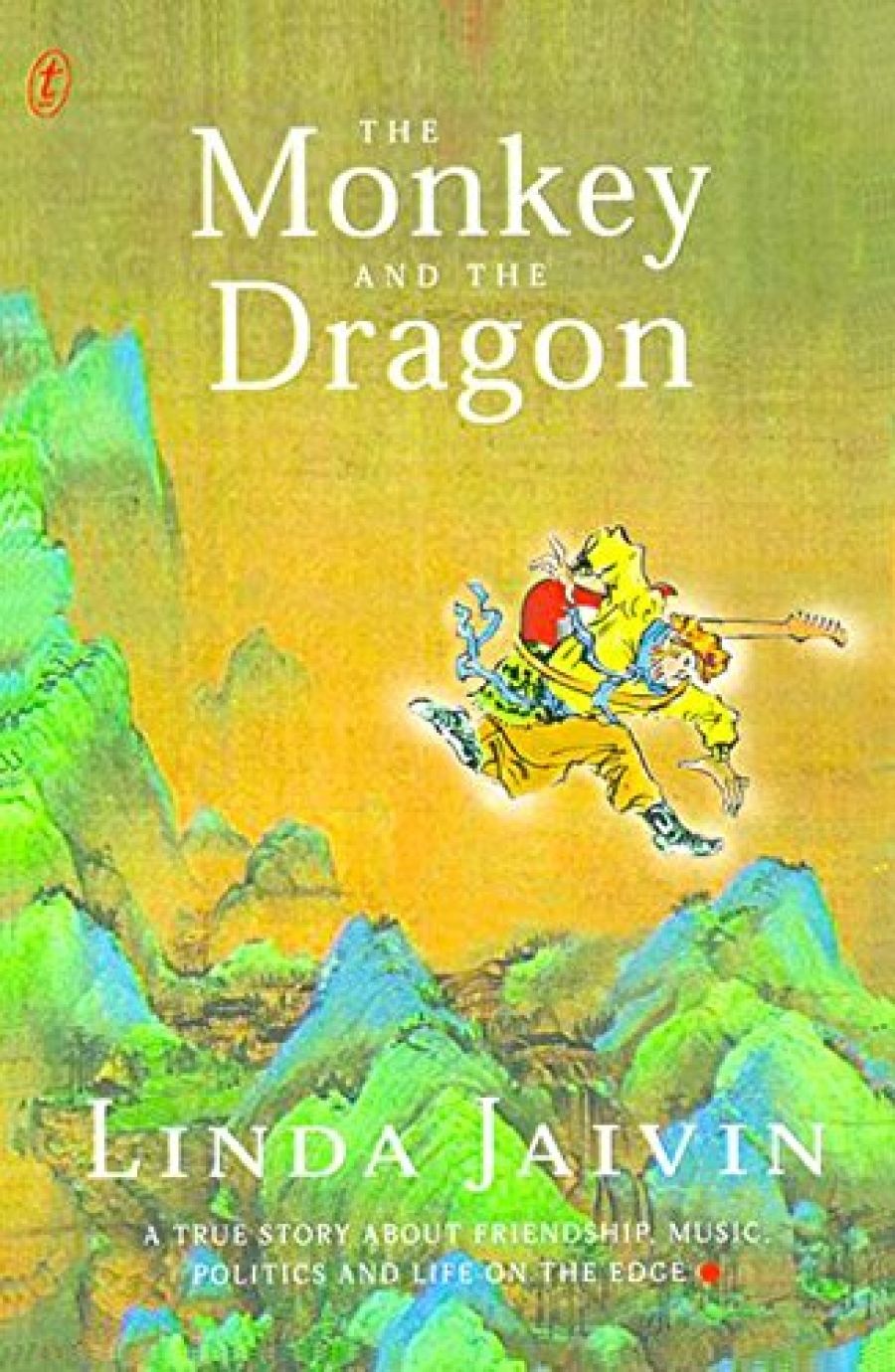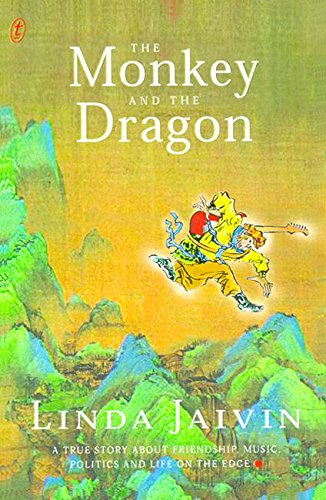
- Free Article: No
- Contents Category: Memoir
- Review Article: Yes
- Article Title: In Your Face
- Online Only: No
- Custom Highlight Text:
How seriously do we take an author who, in her mid-forties, writes about ‘street cred’, calls a department store ‘humungous’ and, discussing Deng Xiaoping’s reforms, asks: ‘Bourgeois decadence? Hel-lo.’? Linda Jaivin studied one of the world’s most difficult languages in Taiwan, Hong Kong and the People’s Republic of China, and, as a scholar and journalist, published perceptive analyses of China. Then she turned to fiction and biography.
- Book 1 Title: The Monkey and the Dragon
- Book 1 Subtitle: A True Story about Friendship, Music, Politics and Life on the Edge
- Book 1 Biblio: Text, $32 pb, 438 pp
- Book 1 Cover Small (400 x 600):

- Book 1 Cover (800 x 1200):

Hou defected from Taiwan to the mainland in 1983. There, Jaivin writes, he ‘got up the nose of the bureaucracy big time’. In 1989, he joined the hunger strikers in Tiananmen Square where, she claims, he ‘helped save thousands of lives’. He then became a full-time dissident. In 1990, he was, Jaivin says, forced back to Taiwan. There Hou turned himself into a celebrity master of feng shui (Chinese geomancy).
Hou Dejian is the Monkey of the title. He was born in 1956 into one of those dysfunctional Chinese families that challenge the filial piety mantra of ‘Asian values’. By his own account, he was a third-rate student, a womaniser and a bullshit artist, a lousy poet and an undistinguished musician. His nickname Houzi means ‘monkey’ and Hou, like Sun Wukong, the Monkey King in the Chinese classic Journey to the West, soon became a rebel, an expert in transformation through travel. The epigraph from Bruce Chatwin’s Utz is apt: Hou is the Harlequin, ‘the arch-improviser, the zany trickster, master of the volte-face’ strutting in his variegated plumage, dancing in the teeth of catastrophe. How he turned himself into an ‘oppressed hero’, defender of the defenceless, and Conscience of the Nation, is Jaivin’s theme.
Hou’s student life in Taipei, in a bohemian ‘nest of human dregs’, surrounded by talk, ideas, music and food, and getting arrested, sets the scene. Full of youthful idealism about the mainland, Hou writes a pop song ‘Heirs of the Dragon’ on the announcement of the USA’s recognition of the PRC. Its meaning is ambiguous: some take it as a nationalistic rallying cry, others as a message about China’s humiliation and grief. Hou offends his friends and surprises his admirers by defecting to the PRC, where he finds his music, ideas, and even his language foreign, but where he, as a famous defector, is officially embraced. Ageing leaders of the PRC talk of loving the country, but Hou’s talk of loving the people is regarded as radical. Hou is led by the ANU China scholar Geremie Barme into the circle of avant-garde artists, writers and diplomats in Beijing.
The Chinese authorities don’t know much about pop, but they know what they like. A rock song in the 1970s has the catchy title ‘Without the Communist Party there would be no new China’. Young singers, male and female, wear elaborate makeup, ‘Western’ clothes with lots of synthetic fibre, and adopt prim stage-poses. In the PRC version of disco dancing, Jaivin describes grim-faced, middle-aged cadres standing in rows, pointing theatrically at a non-revolving disco ball above their heads. Into this scene strolls Hou, with long hair, jeans, no make-up and a guitar, proposing to set up a recording studio for young Chinese pop musicians. Soon after, in 1983, Deng Xiaoping clamps down on bourgeois decadence and spiritual pollution, in which, as Jaivin remarks, most Chinese have scarcely begun to indulge.
The long slide to Tiananmen has begun. Hou is pursued over taxes, officials commandeer the recording studio, Jaivin is followed everywhere, and there is a clamp-down on ‘free’ expression. Hou writes a song in 1989 with the line ‘Get off the stage’, whose message to the geriatric leadership is ‘It’s Time’. An English rock star arrives and introduces himself as a socialist: progressive intellectuals can’t understand why anyone would choose socialism. By now, Hou is driving around in China’s only privately owned Mercedes, from which he watches the army closing in on Tiananmen Square.
Then Hou decides to join the hunger strike. Urging the students to clean up their mess, he writes and performs a song. He negotiates with the army to allow students to leave peacefully, which some do. Hou collapses from exhaustion, is taken to hospital and, when asked if he saw anyone killed on the square, truthfully answers no. Jaivin then tells how Hou is sheltered in the Australian Embassy and, later, when given the choice between betraying his friends or being shipped to Taiwan, takes the deportation option.
Back in Australia, Jaivin tells the Chinese Embassy she is keeping books she has borrowed as hostages for her friends who are still imprisoned. On their account, ‘I wept all the way back to Australia,’ she says. Lots of tears are shed by lots of people in her narrative. Perhaps, in the face of so many millions, doing special deals to help friends is the only honest response under the circumstances. In-your-face honesty is Jaivin’s signature, and we do need to take her account seriously, whether Hou Dejian deserves it or not.


Comments powered by CComment